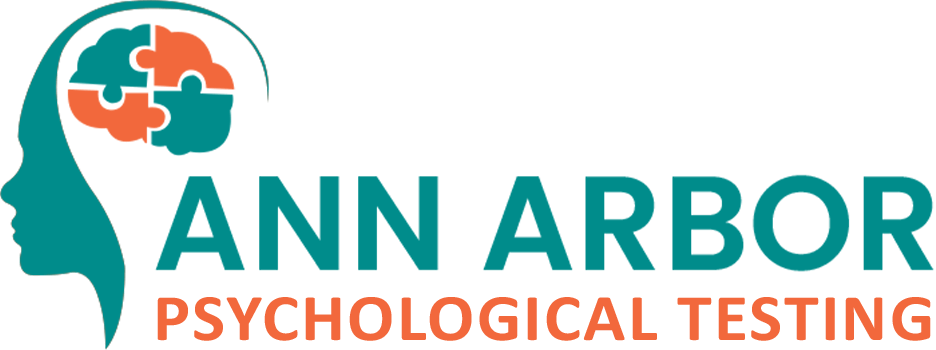ADHD and Trauma: Two Sources of the Same Challenge

At Ann Arbor Psychological Testing, we recognize that ADHD and trauma can sometimes be intertwined, making it essential to distinguish between them for accurate assessment and effective support. Many individuals with ADHD have a history of trauma, and some trauma-related symptoms can resemble ADHD, leading to potential misdiagnosis or overlooked challenges. Understanding this relationship can help individuals and families make informed decisions about evaluation and care.
How ADHD and Trauma Overlap
Attention-Deficit/Hyperactivity Disorder (ADHD) is a neurodevelopmental condition that affects attention, impulse control, and executive functioning. Trauma, on the other hand, refers to the emotional and psychological response to distressing or harmful experiences. Although they stem from different causes, ADHD and trauma can share some overlapping symptoms, such as:
- Difficulty concentrating or sustaining attention
- Impulsivity and emotional reactivity
- Restlessness or hyperactivity
- Memory challenges or forgetfulness
- Difficulties with emotional regulation
Because of these similarities, it is important to differentiate between symptoms stemming from ADHD and those that may be a response to trauma.
The Impact of Trauma on ADHD Symptoms
Individuals with ADHD who have experienced trauma may face additional challenges, including:
- Heightened Emotional Sensitivity: Trauma can amplify emotional responses, making it harder to regulate mood and reactions, particularly in stressful situations.
- Increased Impulsivity: Both ADHD and trauma can contribute to difficulties in impulse control, sometimes leading to risk-taking behaviors or challenges in social interactions.
- Difficulty with Focus: While ADHD naturally affects concentration, trauma-related hypervigilance or anxiety can further disrupt attention and cognitive processing.
- Disrupted Sleep Patterns: Many individuals with ADHD already struggle with sleep, and trauma can exacerbate sleep disturbances, leading to fatigue and further impairments in attention and regulation.
Differentiating ADHD from Trauma Responses
When assessing ADHD and trauma, it is important to consider the context of symptom presentation. ADHD symptoms tend to be lifelong and consistent across different environments, whereas trauma responses may fluctuate based on triggers, stress levels, or specific environments. A thorough psychological evaluation can help clarify whether symptoms align more closely with ADHD, trauma-related responses, or a combination of both.
At Ann Arbor Psychological Testing, our comprehensive assessments consider personal history, behavioral patterns, and validated testing measures to ensure an accurate understanding of each individual’s needs. Our evaluations take into account the possibility of trauma and provide personalized recommendations for support and intervention.
Seeking Support for ADHD and Trauma
Recognizing the role of trauma in ADHD can open the door to more tailored and effective interventions. While ADHD treatments often include behavioral strategies, executive functioning coaching, and, in some cases, medication, individuals with a history of trauma may also benefit from trauma-informed therapies such as:
- Cognitive-behavioral therapy (CBT) to address thought patterns and emotional regulation
- Eye Movement Desensitization and Reprocessing (EMDR) for trauma processing
- Mindfulness and self-regulation strategies to support emotional and attentional control
- Internal Family Systems (IFS) therapy to explore internal dynamics and address trauma-related distress
- Somatic Experiencing to help process and release stored trauma through body-based interventions
If you or a loved one is struggling with attention difficulties and a history of trauma, we encourage you to seek a comprehensive evaluation. Understanding the full picture of an individual’s experiences is essential to providing meaningful support.
ADHD and Trauma Testing at Ann Arbor Psychological Testing
At Ann Arbor Psychological Testing, we offer specialized assessments to help individuals gain clarity regarding ADHD, trauma-related symptoms, and their unique challenges. Our expert team is dedicated to ensuring accurate diagnoses and guiding individuals toward appropriate care and resources.
If you have questions or are considering an evaluation, contact us today to schedule an initial consultation. We are here to help you take the next steps toward understanding and managing ADHD and trauma for improved well-being.
References
- Van der Kolk, B. (2014). The body keeps the score: Brain, mind, and body in the healing of trauma. Penguin.
- Mate, G. (2023). Scattered minds: The origins and healing of attention deficit disorder. Penguin Random House.
- Ford, J. D., & Courtois, C. A. (2020). Treating complex traumatic stress disorders in adults: Scientific foundations and therapeutic models. Guilford Press.
